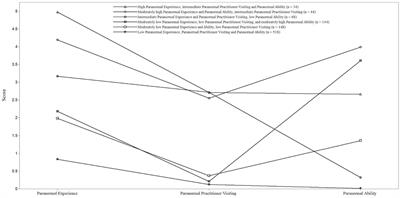Paranormal belief, thinking style and delusion formation: A latent profile analysis of within-individual variations in experience-based paranormal facets
The current study examined the degree to which within-individual variations in experience effected belief in the paranormal, preferential thinking style, and delusion formation.

A sample of 956 non-clinical adults completed measures assessing paranormal indexes (experience, visiting, ability, and belief); belief in science; proneness to reality testing deficits, and emotion-based reasoning. Latent profile analysis (LPA) combined experience-based paranormal facets (experience, visiting, and ability) to produce six underlying groups: class 1, High Experience, intermediate Visiting and Ability (3.6%); class 2, Moderately high Experience and Ability, intermediate Visiting (4.6% %); class 3, Intermediate Experience and Visiting, low Ability (7.1%); class 4, Moderately low Experience, low Visiting, and moderately high Ability (15%); class 5, Moderately low Experience and Ability, low Visiting (15.5%); and class 6, Low Experience, Visiting and Ability (54.2%). Inter-class comparison via multivariate analysis of variance (MANOVA) indicated that breadth and intensity of experiential factors resulted in higher belief in the paranormal, increased proneness to reality testing deficits, and greater emotion-based reasoning. Belief in science was less susceptible to experiential variations. Further analysis of reality testing subscales revealed that experiential profiles influenced levels of intrapsychic activity in subtle and intricate ways, especially those indexing Auditory and Visual Hallucinations and Delusional Thinking. Collectively, identification of homogeneous profiles and performance of inter-class comparisons provided a sophisticated understanding of the relative contribution of experiential factors to differences in paranormal belief, belief in science, proneness to reality testing deficits, and emotion-based reasoning. .
Read the full article at the original website
References:
